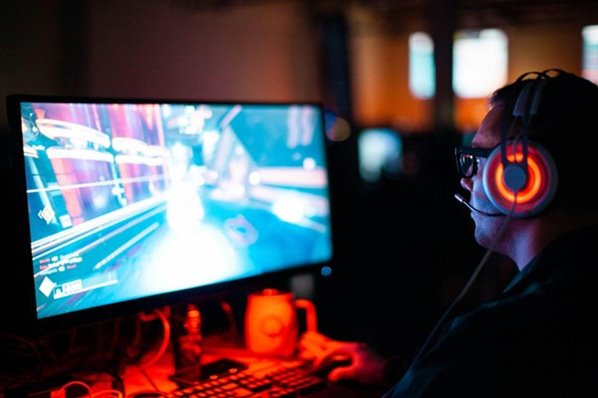
Online gaming is witnessing a huge shift courtesy of Generative AI, a powerful branch of artificial intelligence technology that automates the creation of content that resembles human-like outputs. Generative AI is essentially based on machine learning algorithms programmed to return or produce text, images, audio, and other data types. It is already changing how content is created across domains and is also expected to change ways of engagement and creativity for online gaming.
Generative AI has changed or affected areas like the health, automotive, and entertainment sectors. For example, in the health sector, this has been supported in drug discovery since it predicts behavior on a molecular basis. Conversely, virtual simulations quicken the design process of new car models in the automotive industry. The entertainment industry sees its scripts and animated features enriched by AI-driven creativity, enhancing both efficiency and the depth of creative output.
The rise of online gaming has benefitted from these revolutionary technologies. But this incorporation of Generative AI into gaming isn’t only for improvements in aesthetic appeal or a smoother development process—it’s more to craft immersive experiences that were considered undoable until now. Hence, game development and forever changing gamer-game interaction.
Revolutionizing Content Creation and Game Design
Generative AI allows the automation of a series of game development elements, reducing the creation time and freeing the developer to focus on creativity and innovation.
Another vital feature of generative AI is procedural content generation, which allows the dynamic creation of game environments and scenarios so that every time a player interacts, he realizes a unique game experience. This goes ahead to diversify gameplay and increases the replay value of games.
Generative AI even impacts the creation of characters and environments. Some of the advanced tools in this regard include NVIDIA’s Omniverse platform, which is now being used to create more nuanced and expressive character animations and hyper-realistic, ray-traced environments using AI features.
Enhancing Player Interactions and Personalization
Generative AI massively increases player interactions and personalization in games to the point where it fosters the realism and sensitivity of non-player characters (NPCs). Such technology would allow a much larger set of behaviors and emotions in NPCs, making players more interactive. This helps to make the responses of these NPCs change with player behavior, thus increasing the realism of the experience through a dynamic and individually influenced interaction.
Generative AI will further support adaptive difficulty, which will help change the in-game challenges dynamically based on the player’s skill level. This way, the game would remain engaging for users of all skill levels by changing game elements to either help more or be harder and create an optimal balance.
Additionally, generative AI will also aid in creating in-game events and special challenges that are in tandem with individual playing styles. In other words, there will always be fresh in-game situations, literally tailor-made to suit his preferences and habits, for him to experience.
Generative AI technology has a huge influence on game development. It has an impressive influence in building a much more personal and fun world of games and making a big difference in how narratives and game worlds are formed.
Revolutionizing Game Testing and Debugging
The application of generative AI in game testing and debugging is proving transformative in mainstream video gaming and the online casino sector. The best online casinos now utilize AI algorithms to run thousands of game sessions simultaneously. It allows for extensive testing under various conditions, ensuring that casino games operate flawlessly across different platforms and under all possible gaming circumstances.
By identifying and addressing bugs efficiently, AI helps enhance the overall quality of games, ensuring gameplay issues are rectified before games reach players.
Streamlining Development Processes
Generative AI enhances the creative aspects of game development and significantly streamlines various development processes. By automating tasks such as texture creation, character modeling, and even complex environment design, AI allows developers to reduce the time and resources typically required for these activities.
The efficiency can be particularly transformative for smaller studios, which may lack the extensive resources of larger companies. Such technologies enable these teams to compete on a more level playing field by focusing on creativity and innovation rather than the manual aspects of game development.
Final words
Generative AI is set to become embedded in the gaming industry, delivering innovation and redefining some traditional game development and gameplay models. It is a key invention in the gaming field that can explode the way games are made, played, and experienced. While several hurdles remain to be overcome, the potential benefits are so large that they could usher in gaming to a completely new age of innovation.




